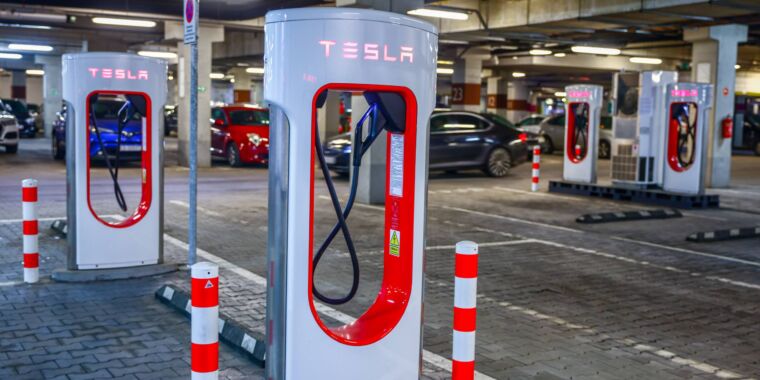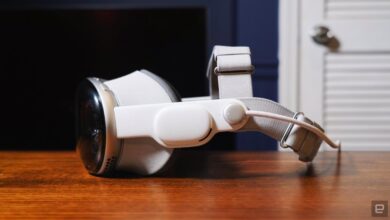Tesla drivers who sued over exaggerated EV range are forced into arbitration


Getty Images | NurPhoto
Tesla drivers who say the carmaker “grossly” exaggerated the ranges of its electric vehicles have lost their attempt to sue Tesla as a class. They will have to pursue claims individually in arbitration, a federal judge ruled yesterday.
Two related lawsuits were filed after a Reuters investigation last year found that Tesla consistently exaggerated the driving range of its electric vehicles, leading car owners to think something was broken when the actual driving range was much lower than advertised. Tesla reportedly created a “Diversion Team” to handle these complaints and routinely canceled service appointments because there was no way to improve the actual distance Tesla cars could drive between charges.
Several Tesla drivers sued in US District Court for the Northern District of California, seeking class-action status to represent buyers of Tesla cars.
When buying their Teslas, each named plaintiff in the two lawsuits signed an order agreement that included an arbitration provision, US District Judge Yvonne Gonzalez Rogers wrote. The agreement says that “any dispute arising out of or relating to any aspect of the relationship between you and Tesla will not be decided by a judge or jury but instead by a single arbitrator in an arbitration administered by the American Arbitration Association.”
The agreement has a severance clause that says, “If a court or arbitrator decides that any part of this agreement to arbitrate cannot be enforced as to a particular claim for relief or remedy, then that claim or remedy (and only that claim or remedy) must be brought in court and any other claims must be arbitrated.”
Tesla drivers argued that the arbitration agreement is not enforceable under the McGill v. Citibank precedent, in which the California Supreme Court ruled that arbitration provisions are unenforceable if they waive a plaintiff’s right to seek public injunctive relief. However, the McGill precedent doesn’t always give plaintiffs the right to pursue claims as a class, Gonzalez Rogers wrote. In the Tesla case, “the Arbitration Provision does not prohibit plaintiffs from pursuing public injunctive relief in their individual capacities,” the ruling said.
Tesla could still be hit with injunction
Public injunctive relief is “brought on behalf of an individual for the benefit of the public, not as a class or representative claim,” the judge wrote. Public injunctive relief is supposed to benefit the public at large. When an injunction benefits the plaintiff, it does so “only incidentally and/or as a member of the general public.”
In other words, a Tesla driver could win an arbitration case and seek an injunction that forces Tesla to change its practices. In a case won by Comcast, the US Court of Appeals for the 9th Circuit in 2021 stated that “public injunctive relief within the meaning of McGill is limited to forward-looking injunctions that seek to prevent future violations of law for the benefit of the general public as a whole, as opposed to a particular class of persons… without the need to consider the individual claims of any non-party.”
Gonzalez Rogers ruled that Tesla’s arbitration agreement “permits plaintiffs to seek public injunctive relief in arbitration.” The US District Court could also issue an injunction against Tesla after an arbitration case.
The Tesla drivers are seeking remedies under the California Consumer Legal Remedies Act (CLRA), the California Unfair Competition Law (UCL), and the California False Advertising Law (FAL). After arbitration, the court “will be able to craft appropriate public injunctive relief if plaintiffs successfully arbitrate their UCL, FAL, and CLRA claims and such relief is deemed unavailable,” Gonzalez Rogers wrote.
The judge stayed the case “pending resolution of the arbitration in case it is required to adjudicate any request for public injunctive relief… The Court finds that the Arbitration Provision does not prohibit plaintiffs from pursuing public injunctive relief in their individual capacities. To the extent an arbitrator finds otherwise, the Court STAYS the action as such relief is severable and can be separately adjudicated by this Court.”
Tesla arbitration clause upheld in earlier case
Tesla previously won a different case in the same court involving its arbitration clause. In September 2023, Judge Haywood Gilliam Jr. ruled that four Tesla drivers who sued the company over its allegedly deceptive “self-driving” claims would have to go to arbitration instead of pursuing a class action.
The plaintiffs in that case argued that “Tesla’s arbitration agreement is unconscionable, and thus [un]enforceable.” They said the arbitration agreement “is not referenced on the Order page” and “is buried in small font in the middle of an Order Agreement, which is only accessible through an inconspicuous hyperlink.”
Ruling against the plaintiffs, Gilliam found that Tesla’s “order payment screens provided conspicuous notice of the order agreements.” He also found that provisions such as a 30-day opt-out clause were enforceable, even though Tesla drivers argued it was too short because it “typically takes much more than 30 days for Tesla to configure and deliver a car.”
Source link




